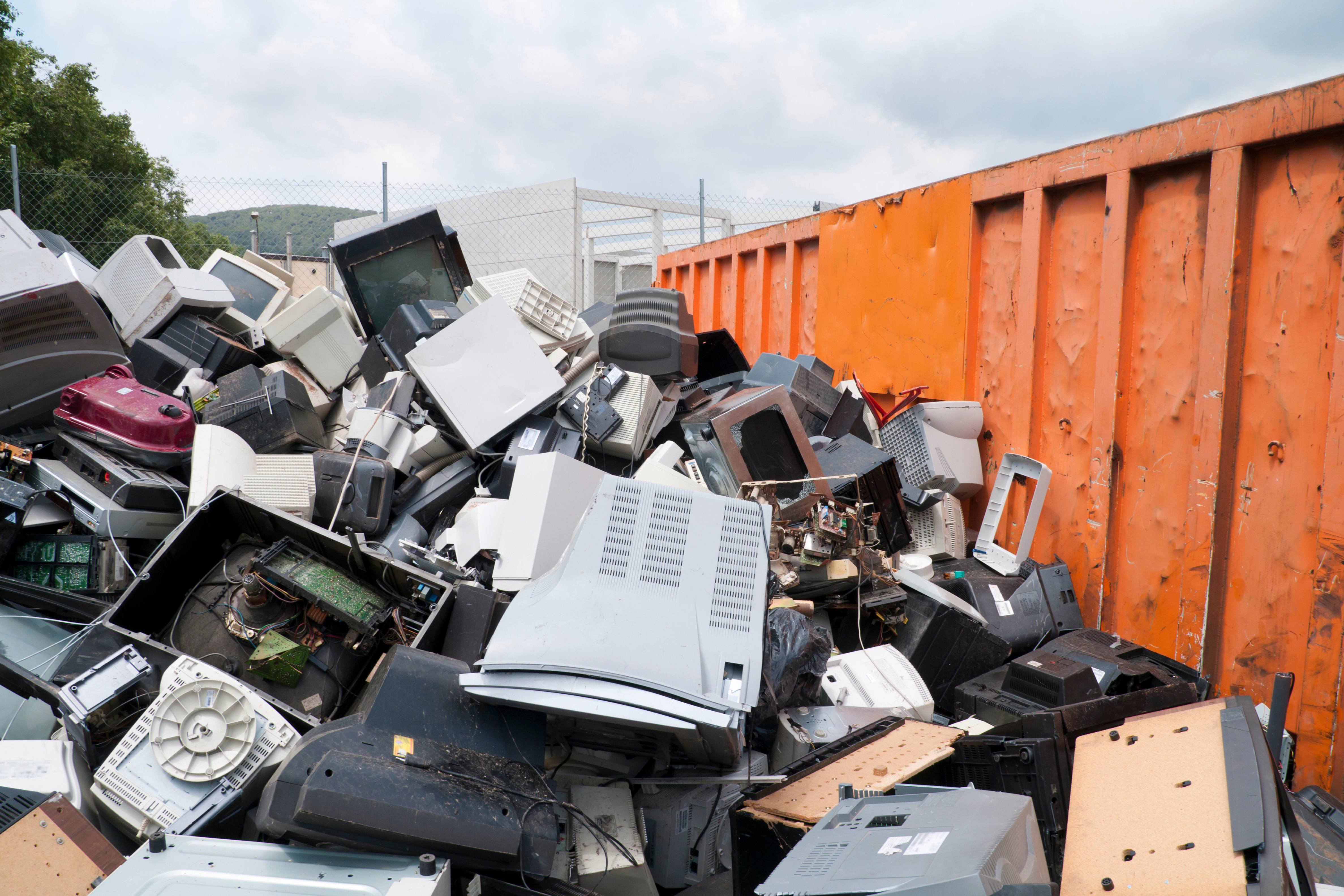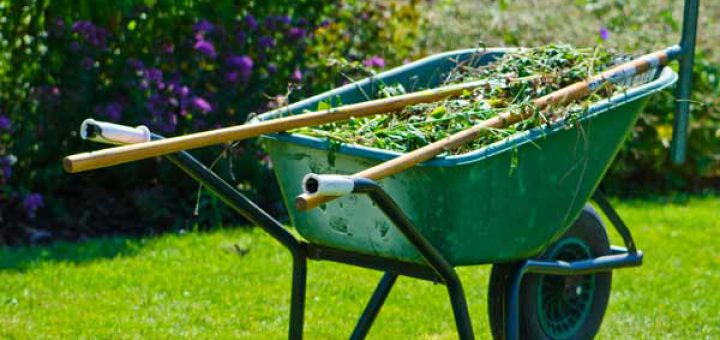
Introduction
The importance of managing commercial waste cannot be overstated in today's business landscape. Overflowing bins and cluttered workspaces aren't just unsightly—they're a sign of inefficiency and can lead to significant environmental and financial consequences. Reducing commercial waste is not merely a nod to eco-friendly practices; it's a practical approach that can enhance operational efficiency and cut costs. This blog'll explore effective strategies to help your business reduce waste, improve sustainability, and save money. Whether running a small startup or managing a large corporation, these practical steps will guide you towards a cleaner, greener, and more cost-effective operation.
Conduct a Waste Audit
The first step in reducing commercial waste is understanding what you're dealing with. Conducting a waste audit will provide valuable insights into the types and amounts of waste your business generates.
Importance of Understanding Your Waste
A waste audit helps you identify the major sources of waste in your operations. By understanding the composition of your waste, you can pinpoint areas where reductions can be made. This foundational step sets the stage for all subsequent waste reduction efforts.
Steps to Perform a Waste Audit
- Collect Data: Start by gathering waste from different departments. Cover a typical period, such as a week, to get a representative sample.
- Sort and Categorise: Separate the waste into categories, such as paper, plastic, organic, and general rubbish. This sorting process helps identify the main waste streams.
- Measure and Record: Weigh each category to understand the volume and frequency of waste produced. Record this data meticulously for analysis.
- Analyse the Results: Look for patterns and major waste contributors. This analysis will reveal opportunities for reduction and recycling.
Analysing the Audit Results
Once the audit is complete, you'll clearly understand where most waste comes from. This information is crucial for setting targeted waste reduction goals and implementing effective strategies.
Set Waste Reduction Goals
With the insights gained from your waste audit, the next step is to establish clear and achievable waste reduction goals.
Establishing Clear and Achievable Targets
Setting specific targets helps to focus your efforts. These goals should be measurable and time-bound. For example, reduce paper waste by 20% over six months. Clear targets provide a benchmark for progress and help maintain momentum.
Integrating Goals into Business Operations
Incorporate these goals into your daily business operations. This integration ensures that waste reduction becomes a part of your organisational culture rather than a one-off initiative. Embed these targets into performance metrics and regular reporting processes.
Communicating Goals to All Employees
Effective communication is key to achieving your waste reduction goals. Ensure all employees know the targets and understand their role in achieving them. Regular updates, meetings, and internal communications keep everyone informed and engaged.
Enhance Recycling Efforts
Recycling is a cornerstone of any waste reduction strategy. By enhancing your recycling efforts, you can significantly reduce the amount of waste in landfills.
Setting Up an Efficient Recycling System
Start by setting up labelled recycling bins in your workplace. Make sure these bins are easily accessible to all employees. Provide bins for various types of recyclables like glass, plastic, and paper.
Educating Employees on Proper Recycling Practices
Proper recycling requires everyone's participation. Educate your employees on what can and cannot be recycled. Provide training sessions and easy-to-understand guides to ensure everyone knows how to recycle correctly.
Regularly Reviewing and Improving Recycling Procedures
Recycling practices should be reviewed regularly to identify areas for improvement. Conduct periodic checks to ensure that recyclable materials are not contaminated with non-recyclables. Continually look for ways to streamline and enhance your recycling processes.
Minimise Packaging Waste
Packaging is a major source of commercial waste. By taking steps to minimise packaging waste, you can substantially improve your overall waste reduction efforts.
Strategies for Reducing Packaging Materials
Opt for minimalistic packaging that uses fewer materials. Consider using biodegradable or compostable packaging options. Additionally, avoid excessive use of materials such as plastic and styrofoam.
Encouraging Suppliers to Use Less Packaging
Work with your suppliers to reduce the amount of packaging they use. Request that they use more sustainable materials and reduce unnecessary packaging. Building strong relationships with eco-conscious suppliers can significantly reduce your packaging waste.
Implementing Reusable Packaging Solutions
Explore options for reusable packaging. For instance, using durable containers that can be returned and reused can drastically reduce single-use packaging waste. This approach not only reduces waste but can also be more cost-effective in the long run.
Implement Reuse Strategies
Reusing items is another effective way to reduce commercial waste. By identifying items that can be reused, you can extend their life cycle and reduce the need for new products.
Identifying Items That Can Be Reused
Take a look at the items you regularly discard and see if they can be reused. Common items such as office supplies, furniture, and even packaging materials often have the potential to be reused.
Setting Up a System for Reusing Materials
Establish a system for collecting and redistributing reusable items. Create a designated area where employees can drop off and pick up items for reuse. This system encourages a culture of sustainability and reduces waste.
Encouraging a Culture of Reuse Within the Workplace
Promote the benefits of reusing items to your employees. Encourage them to think creatively about how items can be repurposed. Regularly highlight successful reuse initiatives to inspire others to participate.
Optimise Purchasing Practices
Smart purchasing decisions can significantly reduce the amount of waste your business generates. You can minimise waste from the outset by prioritising sustainability in your procurement processes.
Buying in Bulk to Reduce Waste
Purchasing items in bulk reduces the amount of packaging waste. When buying in larger quantities, there is often less packaging per unit, leading to substantial waste reduction.
Choosing Products with Minimal Packaging
Whenever possible, select products that come with minimal or no packaging. This approach not only reduces waste but also sends a message to suppliers about your commitment to sustainability.
Prioritising Reusable and Recyclable Products
Opt for products that are either reusable or easily recyclable. Choosing items with a longer life span or those made from recyclable materials helps to reduce waste over time.
Introduce Composting Initiatives
Composting organic waste is an excellent way to reduce waste and create valuable compost for gardens and landscaping.
Benefits of Composting Organic Waste
Composting reduces the amount of organic waste sent to landfills and turns it into nutrient-rich compost. This compost can be used for landscaping or gardening or donated to community projects.
Setting Up an On-Site Composting System
Establishing an on-site composting system involves setting up designated compost bins for organic waste. Ensure these bins are clearly marked and placed in convenient locations. Provide guidelines on what can and cannot be composted to avoid contamination.
Training Employees on Composting Practices
Educate your employees about the benefits of composting and how to do it correctly. Offer training sessions and provide informational materials to ensure everyone is on board with the composting initiative.
Engage Employees in Waste Reduction
Employee engagement is crucial to the success of any waste reduction programme. By involving your staff, you can create a culture of sustainability and ensure that waste reduction becomes a collective effort.
Creating Awareness and Training Programmes
Develop awareness campaigns and training programmes to educate employees about the importance of waste reduction. Use workshops, seminars, and informational materials to spread the message.
Involving Employees in Waste Reduction Initiatives
Encourage employees to participate in waste reduction initiatives. Set up committees or working groups to develop and implement waste reduction strategies. Employee involvement fosters a sense of ownership and commitment.
Providing Incentives for Innovative Ideas
Reward employees who come up with innovative waste reduction ideas. Offer incentives such as recognition, bonuses, or extra time off. This approach encourages creativity and keeps employees motivated.
Utilise Technology for Waste Management
Technology can significantly enhance waste management practices. By leveraging the latest innovations, processes can be streamlined and efficiency improved.
Implementing Waste Tracking Software
Waste tracking software helps you monitor and analyse waste generation and disposal. This data can be used to identify trends and areas for improvement, making your waste management efforts more effective.
Using Smart Bins and Sorting Systems
Smart bins equipped with sensors can provide real-time data on waste levels, helping you optimise collection schedules. Automated sorting systems can also improve the efficiency and accuracy of recycling processes.
Staying Updated with the Latest Waste Management Technologies
Keep abreast of the latest advancements in waste management technology. Innovations such as AI-driven waste sorting and blockchain for waste tracking can offer new ways to reduce waste and improve sustainability.
Regularly Monitor and Review
Continuous monitoring and regular reviews are essential to the success of your waste reduction programme. You can make necessary adjustments and stay on course by keeping track of your progress.
Setting Up Regular Reviews of Waste Management Practices
Schedule regular reviews of your waste management practices. These reviews should assess current strategies' effectiveness and identify improvement areas.
Tracking Progress Towards Waste Reduction Goals
Use the data collected from your waste audits and tracking software to measure progress towards your waste reduction goals. Regularly update your metrics to reflect the current state of your waste management efforts.
Adjusting Strategies Based on Review Outcomes
Based on the results of your reviews, adjust your waste reduction strategies as needed. Be flexible and willing to try new approaches to achieve your goals.
What are the first steps a business should take to start reducing commercial waste?
The first steps include conducting a waste audit to understand the types and amounts of waste your business generates. Following this set clear and achievable waste reduction goals and communicate these to your employees. Establish a recycling system and educate your staff on proper recycling practices.
How can technology help in managing commercial waste more effectively?
Technology can significantly enhance waste management practices. Waste tracking software allows businesses to monitor and analyse waste generation and disposal, helping identify trends and improvement areas. Smart bins with sensors provide real-time data on waste levels, optimising collection schedules. Innovations like AI-driven sorting and blockchain tracking offer new ways to improve efficiency and sustainability.
What are some simple changes businesses can implement to reduce packaging waste?
Businesses can reduce packaging waste by choosing minimalistic packaging that uses fewer materials, encouraging suppliers to use sustainable materials, and implementing reusable packaging solutions. Buying in bulk and selecting products with minimal or no packaging also helps.
Reducing commercial waste is vital to running a modern, sustainable business. You can make a significant impact by conducting waste audits, setting clear goals, enhancing recycling efforts, minimising packaging waste, implementing reuse strategies, optimising purchasing practices, introducing composting initiatives, engaging employees, utilising technology, and regularly monitoring progress. Start implementing these strategies today and enjoy the long-term benefits of a cleaner, greener, and more efficient operation.
For more Tips about Reducing Commercial Waste, check out the We Collect Rubbish.
© We Collect Rubbish

 Log in with Facebook
Log in with Facebook 









